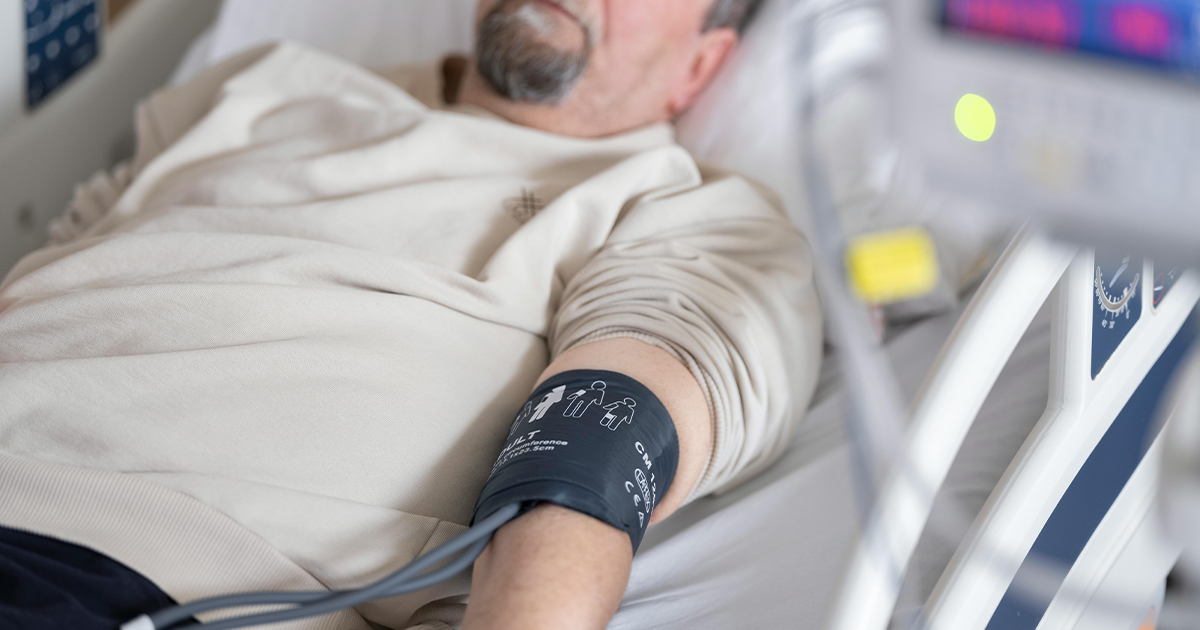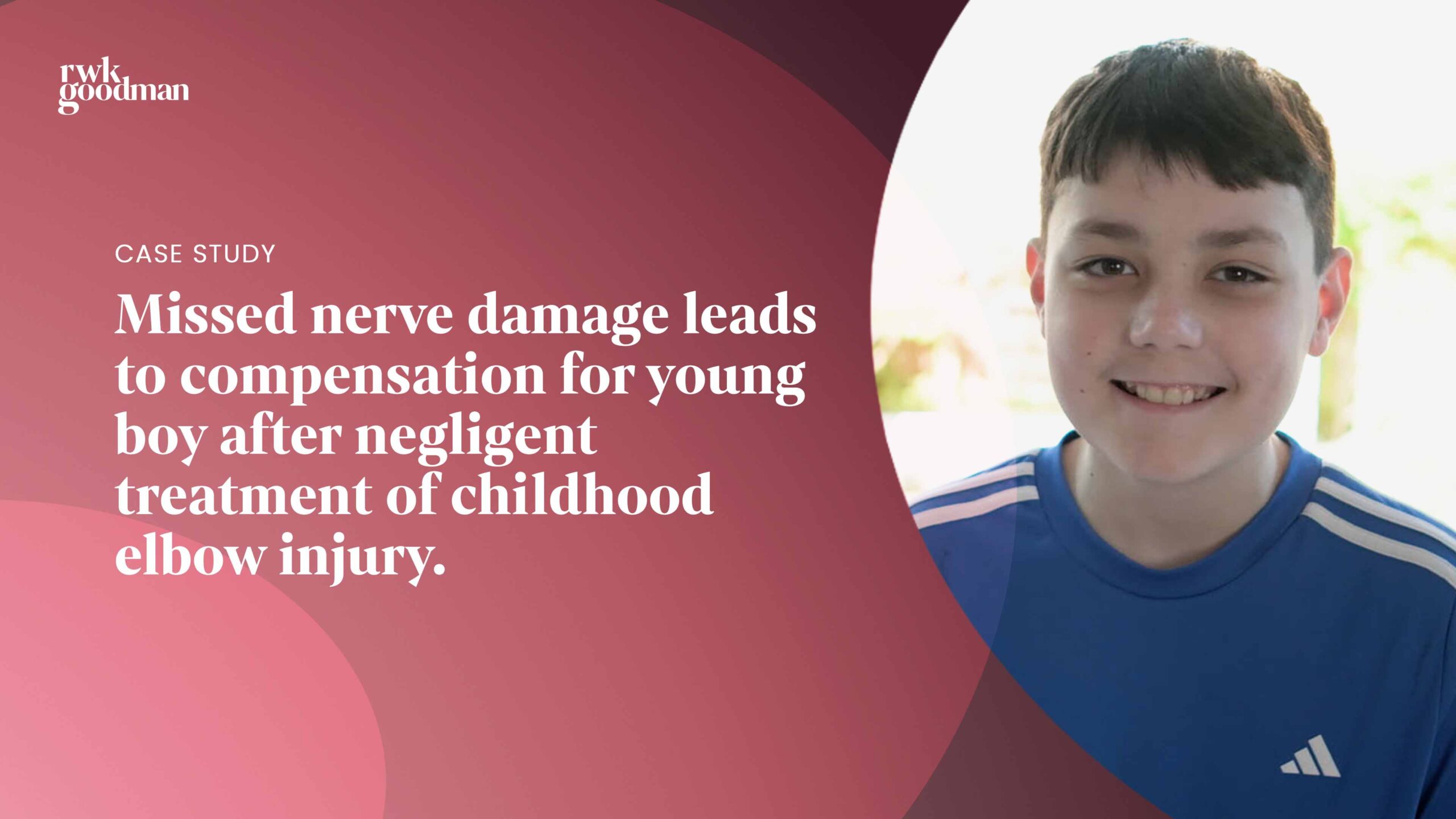How negligent treatment of testicular cancer lead to drug-induced lung damage.

As a UK top 100 firm specialising in medical negligence claims, cancer misdiagnosis and negligent treatment claims are dealt with on a daily basis. As leaders in this field, our team understand the importance of sharing client stories and the positive impact they can have on others in similar destressing situations.
With this in mind, below is the story of Mr M, who was unfortunate enough to receive negligent treatment of testicular cancer.
Client scenario
Mr M, then in his thirties, visited his GP on 22 November 2019, complaining that his left testicle was enlarged and felt harder than the right. At this appointment Mr M’s GP referred him for further investigation with a local diagnostic imaging company.
- Mr M was not aware that although the practitioner who then investigated him signed herself off as a doctor, she was in fact on neither of the two GMC Registers (a requirement for all doctors in England and Wales).
On 27 November 2019, Mr M was seen in the Defendant’s mobile unit, where an ultrasound scan was performed., After this scan it was recorded that he had a left-sided varicocele and left orchitis and was subscribed antibiotics.
- However, the findings were in fact far more consistent with a tumour than orchitis, and Mr M subsequently discovered that orchitis isn’t a diagnosis that should normally be made solely on the basis of ultrasound findings.
Mr M’s symptoms did not improve, and following further referrals by his GP, he attended the Defendants’ on 20 January 2020, 14 July 2020 and 14 September 2020 for further ultrasound investigations. At none of these appointments were findings consistent with a malignancy recorded. Mr M was told he was suffering from orchitis and left-sided varicocele was noted to be present, then absent, and then present again (which would be very unlikely).
-
- When we investigated the case further, it transpired that the “doctor” who investigated him had technical as well as diagnostic shortcomings, and had used the “MSK” setting to investigate a testicle. MSK stands for “musculoskeletal”, and as testicles aren’t muscles or skeletal structures this was not suitable in making an accurate assessment. Elsewhere, she also failed to capture the entirety of the testicle in the image, which meant that we were unable to work out the precise extent of the swelling.
Mr M took further courses of antibiotics, and his symptoms again failed to improve.
Finally, Mr M was referred to Urology by his GP on 15 September 2020. A testicular tumour replacing the entire left testis was found. Further spread was suspected, and On 2 October 2020, he underwent the surgical removal of his left testicle. By this time, there was infiltration into the lymph nodes, which meant that there was the possibility that the disease had become metastatic.
Definition – Metastatic: The spread of cancer cells from the place where they first formed to another part of the body. In metastasis, cancer cells break away from the original (primary) tumour, travel through the blood or lymph system, and form a new tumour in other organs or tissues of the body.
Mr M was therefore advised to undergo a strong course of chemotherapy called Bleomycin, which he started on 2 November 2020.
Shortly after Mr M became extremely fatigued, breathless, and found himself unable to do simple things like vacuuming the stair carpet unaided. Mr M was taken off Bleomycin, but it was then discovered that he had already suffered an acute toxic reaction to this drug, which did not remit. Because of this he remained unable to do any of his own housework, DIY or gardening (all of which he had previously enjoyed) and was unable to go into the office unless he had his own room (as it was feared that Covid or any other chest infection on top of his lung condition could be lethal). Thankfully Mr M was fortunate enough to have a very sympathetic employer who made adjustments for him, but unfortunately his condition meant that he was unable to progress his career as he would have wished.
Our medical negligence legal support
The RWK Goodman team managed to establish not only was Mr M’s initial care was extremely substandard, but that with non-negligent care he would have been referred to urology in late 2019, when his cancer would have been diagnosed. Had it been diagnosed at this point, it would have been localised with no suggestion of spread, and he would have avoided the chemotherapy which he ultimately required.
The complication itself was extremely unusual, and required very careful input from a range of medical experts, who had to advise – by close reference – to the available research literature. As ever, the burden of proof was on us, and a very thorough approach was needed.
When Mr M came to us, he was not in a good place physically, emotionally or financially, and his litigation was hard-fought. We were delighted to conclude his case earlier this year, settling for £300,000. Although we cannot give Mr M back his time, we are hopeful that this settlement enables him to begin to rebuild the life he had lost.
If you suffer an injury caused by medical negligence, it can have a devastating impact. At what is a distressing time, you need to count on expert help. That’s where we come in.
Talk to our medical negligence specialists today. Call 0330 191 4135 for a free consultation or find out more here.
Our medical negligence services and support
Legal insight from our team of medical negligence experts
View more articles related to Medical negligence













